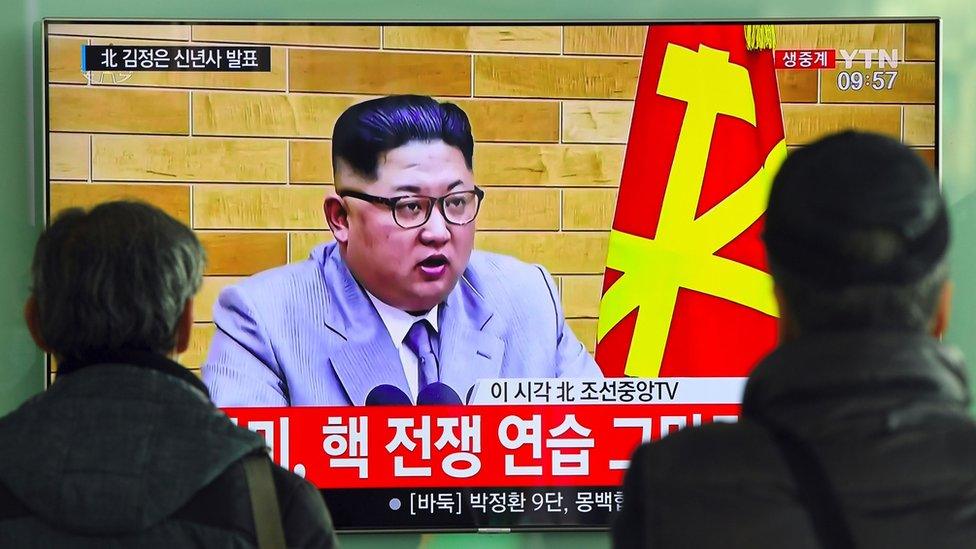What we know of the Koreas' red and green phones
- Published
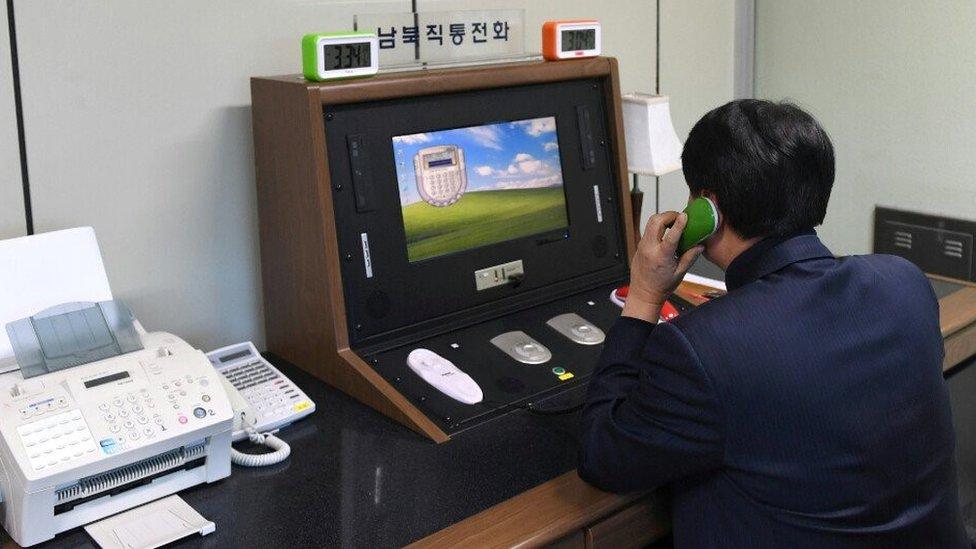
This is the South-North Direct Telephone in South Korea's Freedom House. A similar device is in North Korea's Panmungak building nearby
Every weekday for the past two years, a South Korean official has picked up a green phone and rung a counterpart just over the border in North Korea. No-one has picked up the call in that time.
But all that changed at 15:30 (06:30 GMT) on 3 January 2018. During the course of 20 minutes, the two sides tested their hotline amid high hopes it signified an easing of tensions between the two Koreas.
The hotline in the border village of Panmunjom has long been a key source of communication between the neighbours, who are still technically at war. But what do we know about it?
'No jokes'
It looks like something straight out of the Cold War - and it is. Built in to a black and wood desk and housing a green and red phone and a computer screen, the South-North Direct Telephone was installed in 1971 to allow for talks between the South and North Korean Red Cross, external.
The one pictured at the top of this story sits in South Korea's Freedom House and connects to a similar desk in North Korea's Panmungak offices. The two buildings are less than 100m (328ft) away from each other in Panmunjom, inside the heavily-fortified demilitarized zone (DMZ).
More communication lines were established in 1972 when there was talk of a possible reunification, and again in the 1990s and 2000s.
Today there are 33 communication lines between the two Koreas - five for daily communications, 21 for inter-Korean talks, two for air traffic issues, two for maritime issues and three for joint economic co-operation issues.
But they have mostly lain dormant since February 2016 when the North broke ties with the South after Seoul suspended a joint economic project at Kaesong industrial complex over Pyongyang's nuclear tests.
Take a tour of Panmunjom
A former South Korean communications officer recalled to Yonhap news agency what it was like working there in the early 1990s.
"All the phone calls were official. We didn't exchange any unofficial jokes," Kim Yeon-cheol told the agency in 2008, external.
He described a daily routine whereby calls were made at 09:00 every morning and then again at 16:00 before leaving for the day.
"We called them on odd dates, and North Korea called us on even dates," he added.
There are no odd and even days any more, a unification ministry spokeswoman told the BBC, but the routine of calling twice a day has continued - for the South Koreans. They call on the green phone. The red phone is to receive incoming calls from the North. Neither have yielded anything from across the border in nearly two years.
"Technically the lines were still connected but North Korea wasn't picking up the phone" the ministry spokeswoman said.
"Before February 2016, the two sides made daily contact from Monday to Friday. Either side would ring at 09:00 to check that the phone was still working," she explained.
"If we had a message, we would ask the North if they were happy to receive it. We would then put the phone down and the message would either be sent via the fax machine or by meeting face-to-face."
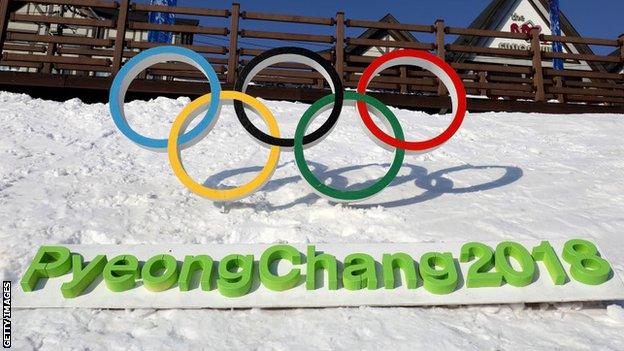
Will the North Koreans be at the Winter Olympics in Pyeongchang next month?
The timings were thrown into slight disarray in 2015 when North Korea brought forward its time zone by half an hour.
'Sincere' talks
The decision by the North to reopen the hotline came after leader Kim Jong-un said in a New Year's Day speech he was "open to dialogue" with Seoul and to sending a team to the Winter Olympics in the South next month.
Ri Son-gwon, who handles the North's inter-Korean relations, said Kim Jong-un had given the order to reopen the line to discuss "a right time for talks and sending a delegation to the Pyeongchang Winter Olympics".
He said they would "make close contact.... in a sincere and faithful manner" and "discuss working-level issues related to the dispatch of the (Winter Olympic) delegation".
South Korea's unification ministry spokeswoman told the BBC that Wednesday's call was mainly to test the line. It is still too early to say how contact will develop going forward, but "it may be through a face-to-face meeting or a formal exchange of letters," she suggested.
- Published3 January 2018
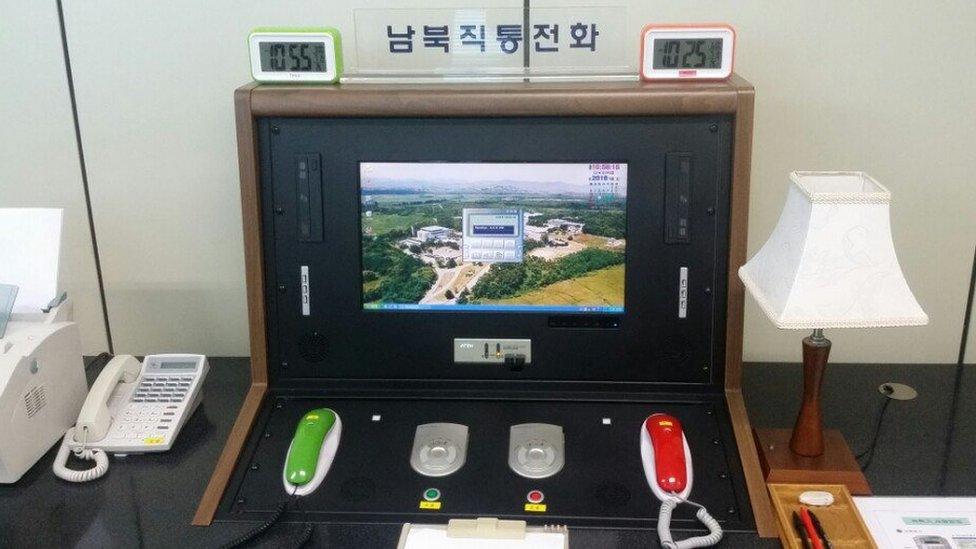
- Published3 January 2018
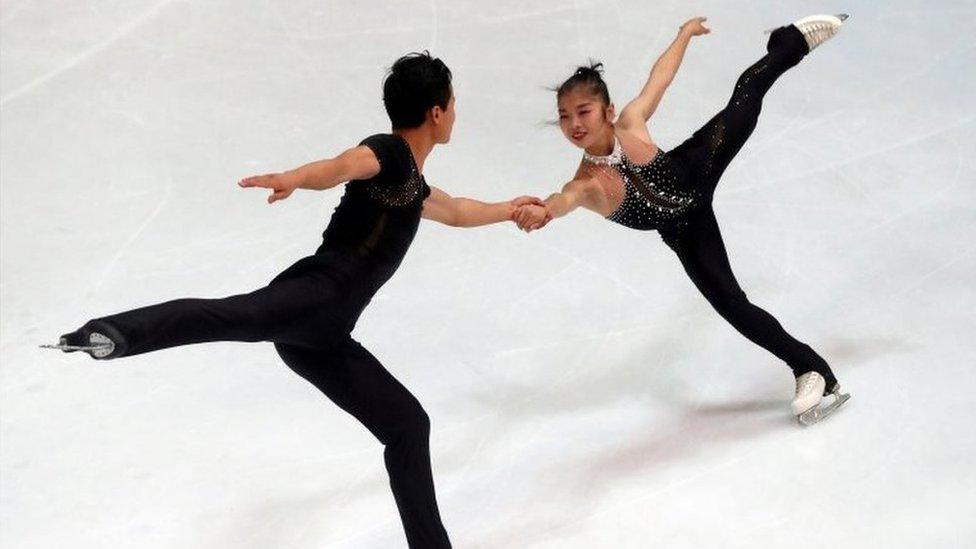
- Published3 January 2018
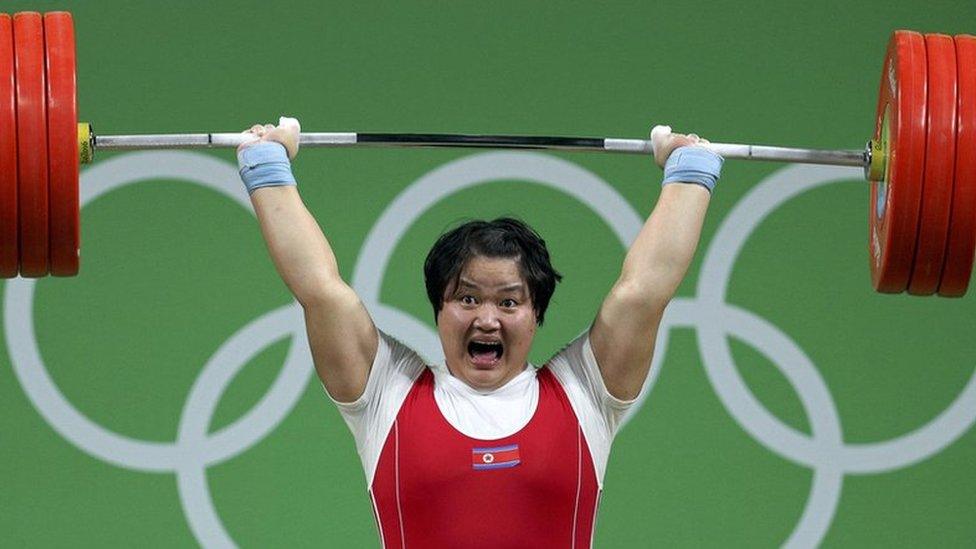
- Published2 January 2018
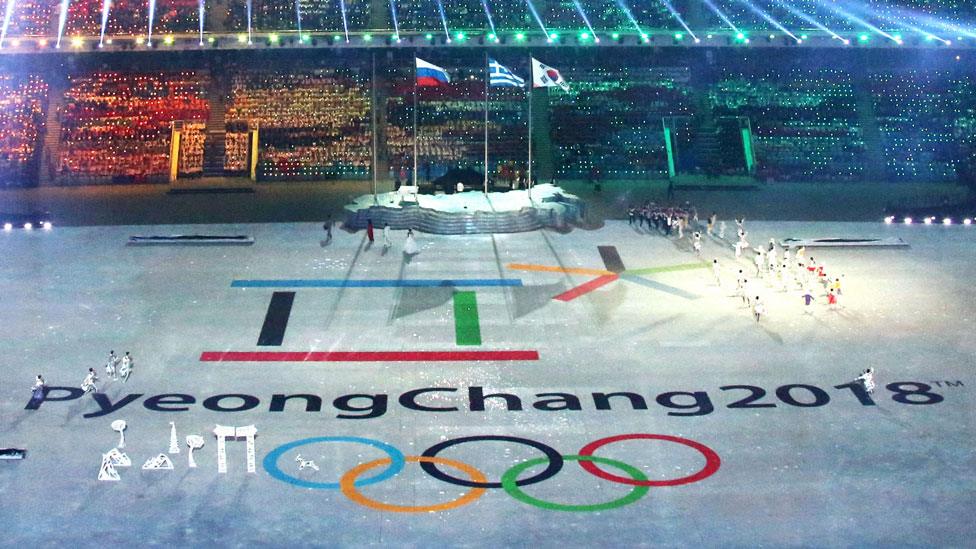
- Published21 April 2020
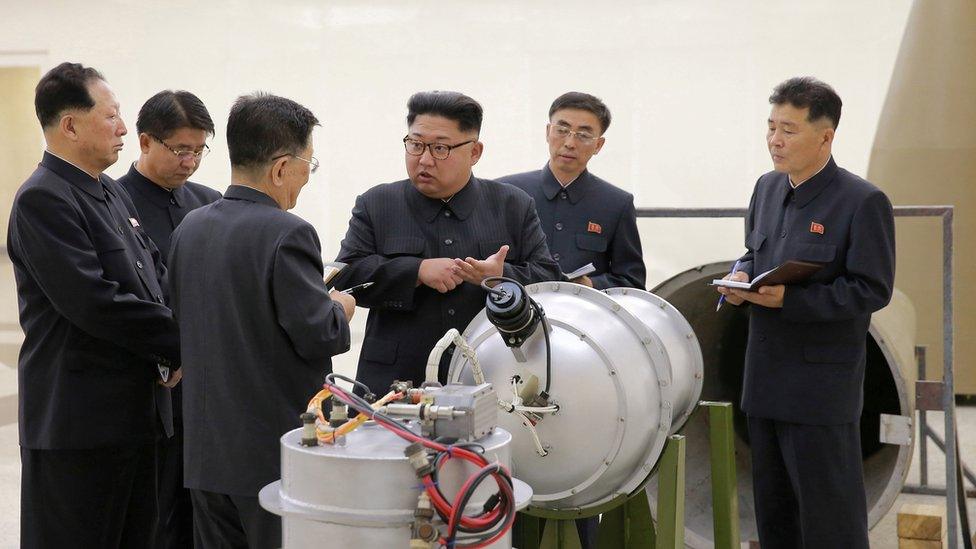
- Published1 January 2018
